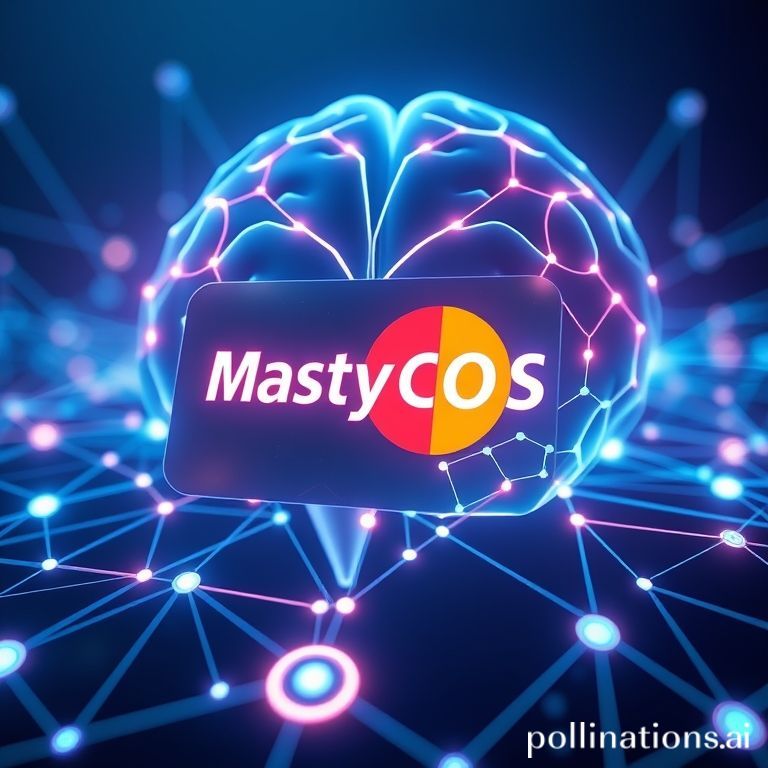PayOS & Mastercard Pioneer AI Payments with Agentic Tokens

The Dawn of Agentic Commerce: PayOS and Mastercard's Landmark Achievement
In a significant stride for digital commerce, PayOS and Mastercard jointly announced on September 29th the successful completion of the first live agentic payment utilizing a Mastercard Agentic Token. This seminal event marks a critical juncture, transforming agentic commerce from a conceptual framework into a tangible reality. It offers a compelling glimpse into how Artificial Intelligence (AI) agents are poised to fundamentally reshape the mechanisms of payment authorization, security protocols, and scalability within global financial ecosystems.
Building the Indispensable Trust Layer for Agentic Payments
The innovative demonstration was underpinned by Mastercard Agent Pay, a sophisticated framework meticulously constructed upon the very same network tokenization infrastructure that currently safeguards mobile contactless transactions, secures card-on-file data storage, and powers Mastercard Payment Passkeys. By extending the capabilities of these proven digital rails, the system empowers AI agents to autonomously initiate payments, all while rigorously upholding paramount principles of user consent, robust authentication, and comprehensive fraud protection. Mastercard aptly refers to this intricate security architecture as the “trust layer” – an essential foundation for the nascent field of agentic commerce.
Pablo Fourez, Mastercard’s esteemed Chief Digital Officer, underscored the strategic imperative behind this development, stating, “Mastercard is diligently constructing a secure, transparent, and inherently interoperable agentic ecosystem for the dynamic landscape of digital commerce.” Fourez further articulated Mastercard’s vision: “We are actively defining this crucial trust layer by employing tokenized credentials across our expansive global payments network today, concurrently laying the groundwork for a future where the internet itself is re-architected to more natively support agentic commerce.” This forward-looking perspective highlights a proactive approach to evolving digital infrastructure in anticipation of AI-driven transactional paradigms.
From Testing to Commercialization: PayOS's Strategic Pivot
For PayOS, this monumental transaction signifies a decisive strategic pivot from rigorous testing phases to full-scale commercialization. Johnathan McGowan, co-founder and CEO of PayOS, expressed enthusiasm regarding this transition, remarking, “With this pivotal milestone, we are now fully prepared to onboard customers onto our cutting-edge platform.” McGowan further emphasized the comprehensive capabilities PayOS brings to the market: “We also deliver proven tools and the specialized expertise requisite for effectively managing payments risk, proactively preventing payments fraud, and ultimately curating superior user experiences.”
The PayOS platform is engineered to seamlessly integrate network-issued tokens, thereby facilitating AI-driven checkout processes. Beyond this core functionality, it incorporates a suite of value-added services meticulously designed to bolster fraud prevention mechanisms and enhance the overall user experience. Its robust payments infrastructure is specifically architected to capably handle monetization strategies, streamline bill payments, and execute advanced processing tasks with efficiency and precision. As a testament to its readiness, PayOS is actively engaging and onboarding both agentic and traditional customers eager to leverage the benefits of secure tokenization and its intelligent payment services.
The Broader Implications: Tokenization as an Orchestrator in the Agentic Era
This landmark announcement also conspicuously highlights a profound evolutionary trajectory within card networks, illustrating their expansion beyond mere security functions into more encompassing roles as orchestrators for the rapidly approaching agentic era. As industry analysis has consistently observed, tokenization is progressively solidifying its position as a foundational strategic pillar for contemporary digital payments. Its utility extends far beyond merely securing individual transactions; it is increasingly instrumental in enabling more intelligent, adaptive, and seamless commerce flows across diverse digital touchpoints.
The announcement underscores a broader, transformative shift as agentic payments transition decisively from experimental pilots to widespread live deployments. With Mastercard strategically extending its sophisticated tokenization framework to robustly support AI-driven transactions, and with PayOS emerging as one of the vanguard adopters, the essential foundational elements required for scaling agentic commerce are now manifestly beginning to materialize. This concerted effort is critical for establishing the infrastructure necessary to integrate AI seamlessly into transactional processes.
Furthermore, the evolution of agentic AI is progressing rapidly, moving beyond its experimental origins to establish itself as a foundational infrastructure. Autonomous agents are increasingly demonstrating the capability to translate user prompts directly into completed purchases, effectively bypassing traditional intermediaries. Should the embedded security and trust models consistently prove their efficacy in practical applications, agentic payments are poised to swiftly emerge as a significant competitive differentiator. This will be particularly true for merchants, issuers, and various platforms that are strategically aiming to embed a greater degree of autonomy and intelligence into their digital transaction paradigms.
Conclusion: Charting the Future of Digital Transactions
The collaborative achievement between PayOS and Mastercard represents a pivotal advancement in the realm of digital payments. By successfully executing the first live agentic payment, they have not only validated the potential of AI-driven commerce but have also laid critical groundwork for its widespread adoption. This development signifies a future where transactions are not only more secure through advanced tokenization but also more intelligent and autonomous, fundamentally enhancing efficiency and user experience across the digital economy. As this agentic ecosystem continues to mature, it promises to unlock unprecedented levels of innovation, reshaping how value is exchanged and commerce is conducted globally.
